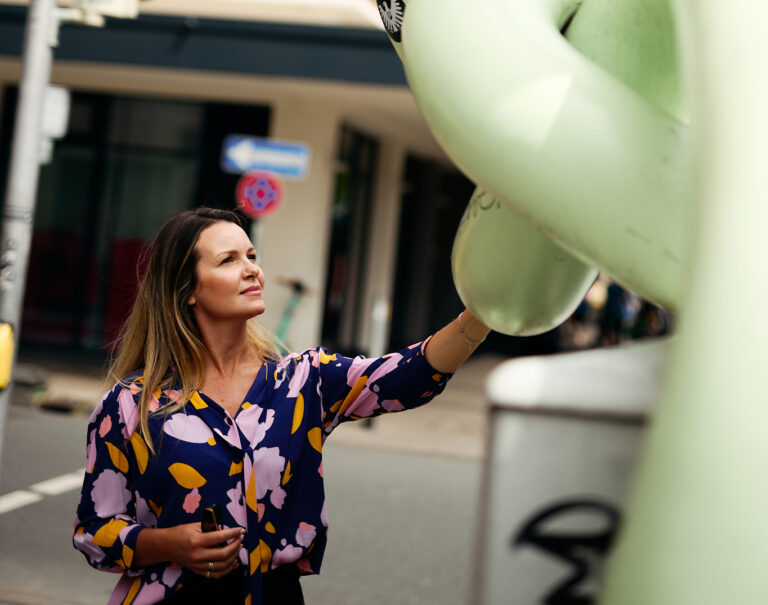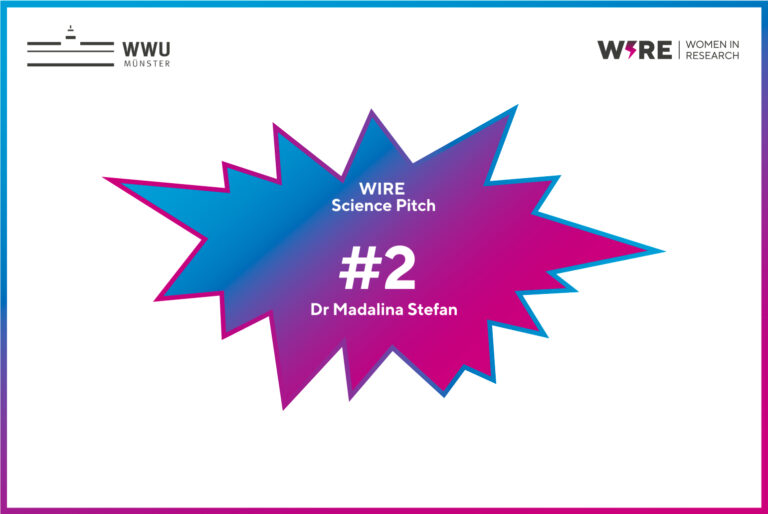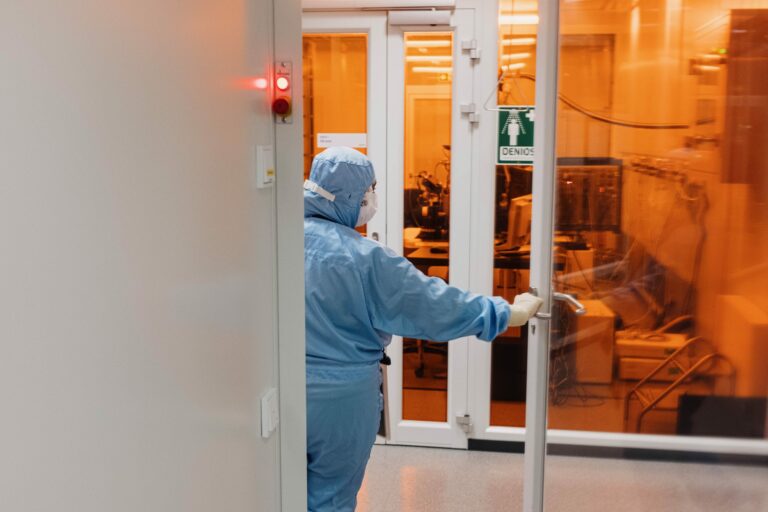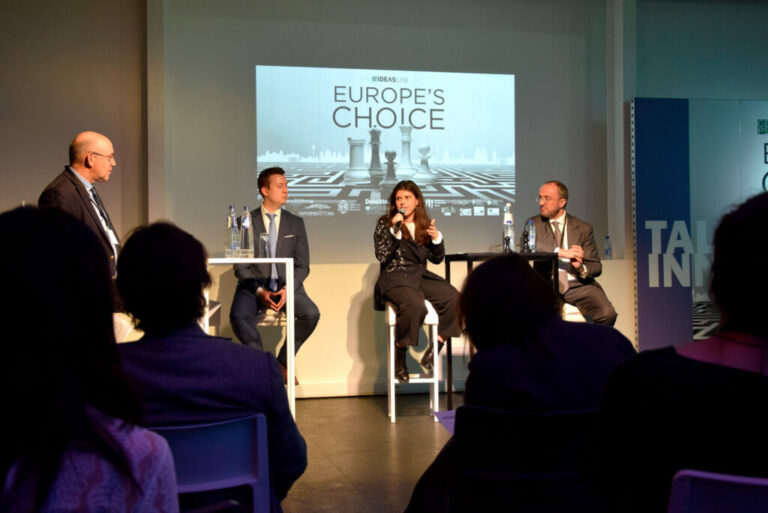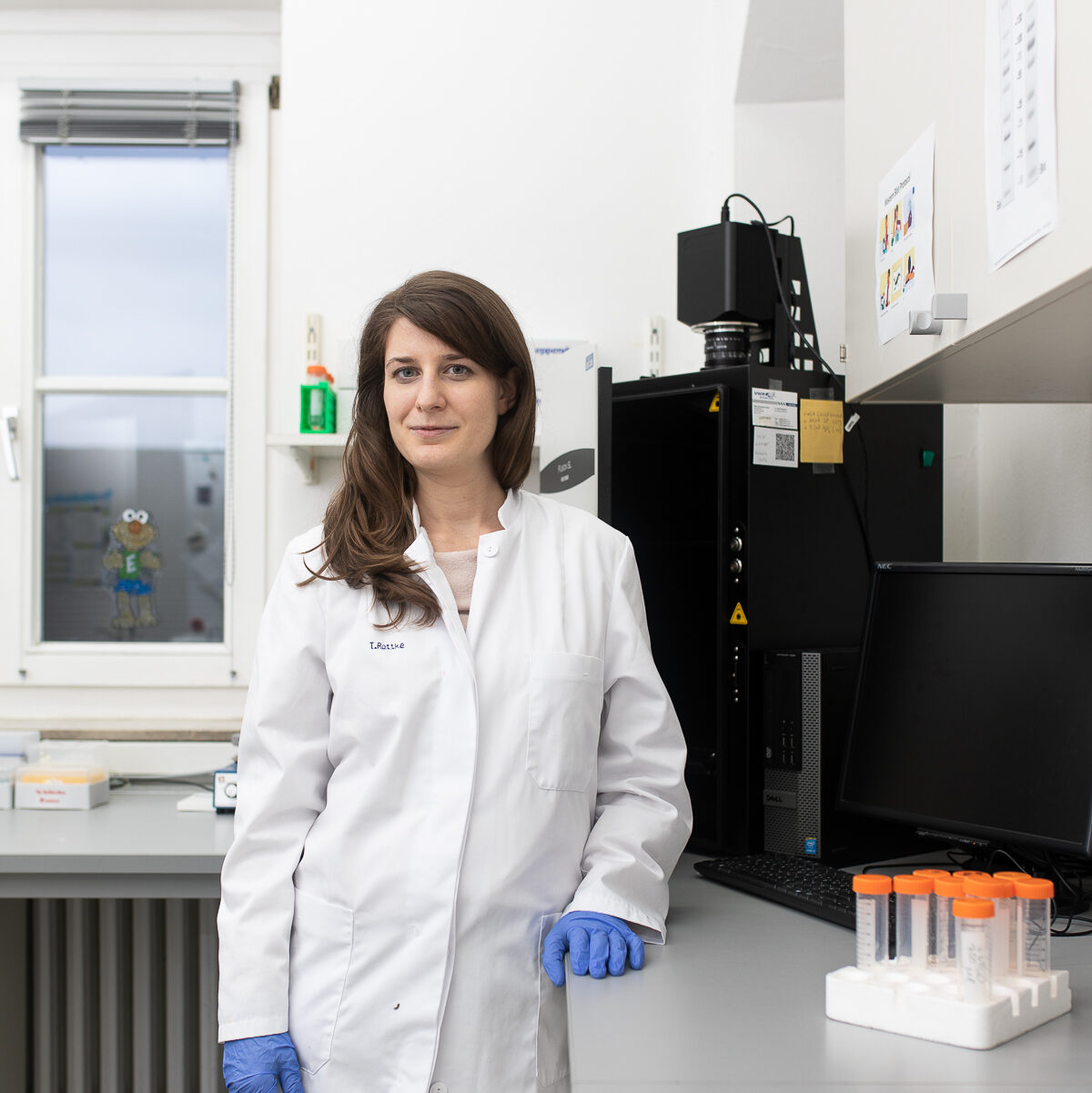
The Value of Interdisciplinary Bioengineering: an Interview With Our Bioengineer Dr. Anna Stejskalová
In the series “33 questions” we introduce, in no particular order, our WiRe Fellows who are currently working on a research project here at the University of Münster. Why 33? Well, if we think of the rush hour of life, it is kind of the age that lies in its middle. And we also like the number😉
In today’s episode we are speaking with Dr. Anna Stejskalová, bioengineer dedicated to improving women’s health.
Since her WiRe Fellowship, Anna has contributed as a guest blogger – read more about her research on endometriosis here and here.

1. What motivated you to work in the field of bioengineering?
Bioengineering is a discipline that uses the knowledge of biology, engineering and chemistry to improve or advance healthcare. I have always enjoyed these subjects at school and at some point during my high school, I saw a documentary on bioengineers growing cartilage in the lab. As I saw family members struggling with joint problems, I thought bioengineering would be the perfect discipline for me.
2. Describe your daily work in three words.
Planning, experiments, analysis.
3. Describe your research topic in three words.
Endometriosis, model, invasion.
4. A good bioengineer needs…?
A lot of passion for his/her subject to enjoy thinking about new experiments and to have the motivation to troubleshoot the experiments when things don’t turn out as planned.
5. What is the best experience you have had as a scientist / researcher?
Overall, I find doing research really satisfying and I have enjoyed both my PhD at Imperial College London and my postdoc here at the WWU in Münster. I would say the best moment was seeing all the figures for my first paper put together after several years of work and feeling like all the effort was worth it.
6. What was your biggest research disaster?
There is something that feels like one every few weeks, but nothing major I can think of right now (probably until next week).
7. Which (historical) important scientist would you like to have dinner with? What would you ask?
A person I would like to meet for a dinner is the former Queen musician Brian May who later went on to obtain a PhD in astrophysics from Imperial College London. I would ask him whether he saw any parallels between doing music and science.
8. If time and money were no object: which research project would you like to do?
I feel that there are still many unanswered questions regarding women’s health. If money was no constraint, I would like to use advanced materials to design more targeted therapies for diseases like endometriosis.
9. What is your favourite research discipline other than your own?
I like bioengineering because it is very multidisciplinary, and you get to learn about new discoveries ranging from neuroscience to synthetic biology during your studies. One discipline that I enjoyed because we had a great professor teaching it, but which I never got to use is electrical engineering.
10. What do you consider the greatest achievement in the history of your field?
The development of cell culture techniques where you can grow cells for long periods of time. This approach makes it possible to study various diseases without having to always use animals and even to assess, at the molecular level, what might be the right personalized treatment for each patient.
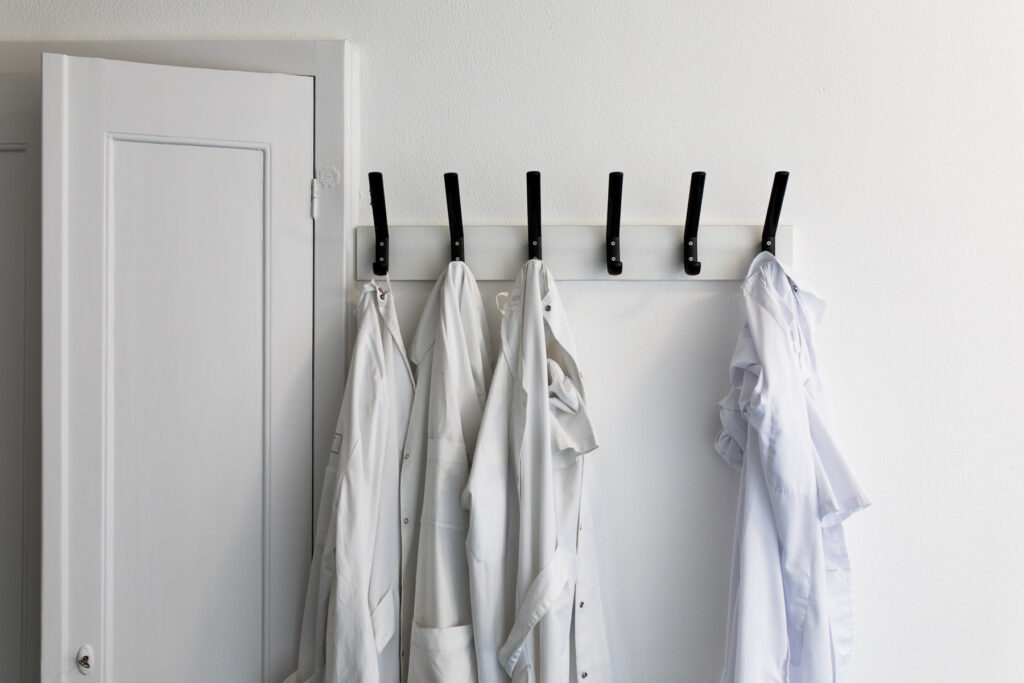
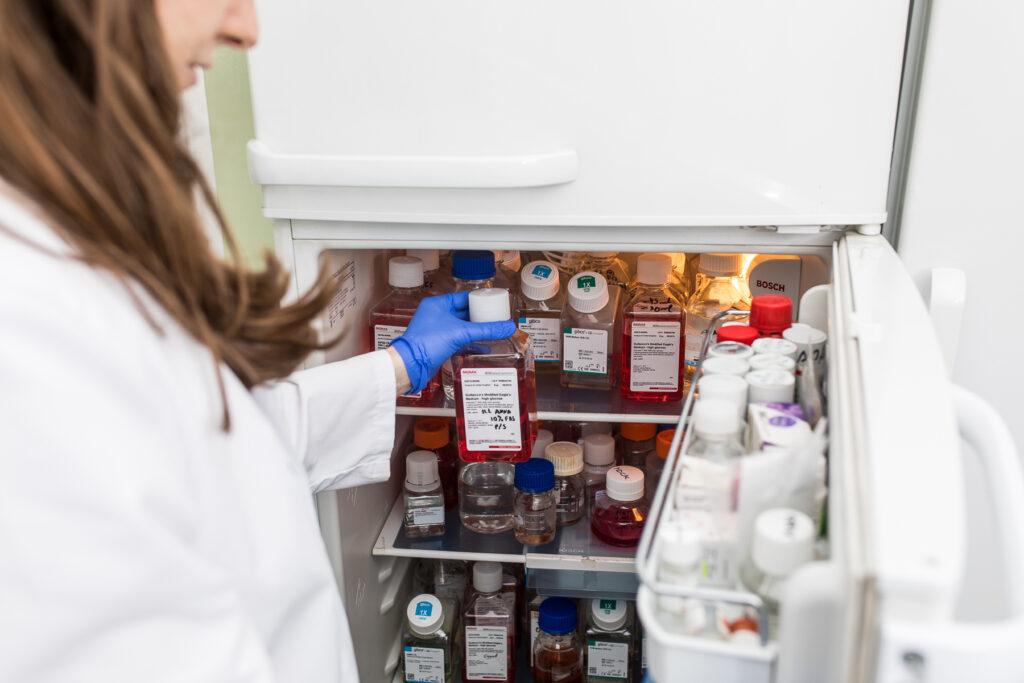

11. Which experience in the world of science disappointed you most?
Sometimes it is hard to adapt to the short-term contracts that leave less time to conduct follow-up experiments and explore the subject more deeply.
12. How did you survive your PhD time?
Doing a PhD was quite a change compared to studying for an undergraduate degree. It meant all of a sudden finding solutions to problems no one had worked on before as opposed to learning from well-prepared notes. I was lucky to have a great advisor and friends who were very supportive.
13. What direct or indirect relevance does your research have for society?
Currently, I am studying endometriosis. It is a disease where the lining of the uterus grows elsewhere in the body, causing severe pain. Despite this disease being very common (it is estimated that 6–10 % of women suffer from this disease), what causes the disease and how to treat it is still not fully understood. What we are doing in the lab is studying the diseased cells and the possible mechanisms they use to invade other tissues and organs. This could, in the future, lead to more targeted therapies.
14. How did you imagine the life of a scientist / researcher when you were a high school student?
I always thought scientists are basically detectives in white coats who instead of finding human villains fight viruses and other culprits that cause disease. I think this was the result of my parents owning a lot of popular science books which I enjoyed reading.
15. Is it actually different? In what way?
Of course, it is easy to put big discoveries such as the discovery of DNA in that light. One quickly realizes, however, that the day-to-day science is not about making breakthrough discoveries. Nevertheless, being a researcher is still exciting and you have to rigorously follow different clues almost every day.
16. What do you like most about the “lifestyle” of a scientist? And what least of it?
I like the freedom one has, to a big extent, to choose the topics one thinks are the most pressing and then work on them. I also feel this is why, if we as a society want to address a broader range of current challenges, we need more people from different minorities to become scientific leaders.
17. Do you think your career would have evolved differently if you were a man?
That is hard to answer. I think that while I might have chosen the same career, maybe I would have been attracted to different research topics and questions. I think these days one can apply scientific training in a range of disciplines both in academia and industry regardless of their gender.
18. If you were the research minister of Germany, what would you do to improve the situation of women in science?
I think it is great that there is an ongoing discussion here in Germany regarding which specific practical measures to adopt that would make it possible for women to both start a family and continue their careers. For example, early child care available close to the work place or grants to support active participation of women at conferences already implemented here at the University of Münster are a great idea. With regards to scientists coming from abroad, one of the practices that Germany could improve is to ensure that all the fellowships are not classed as scholarships but come with proper taxes and social benefits.
19. If you had a daughter, what would you advise her not to do?
I would tell her not to be afraid to try things and to enjoy and use her talents.
20. What is the biggest challenge for you when it comes to balancing family and career?
I have spent most of my career abroad, which means that I mostly get to see my family and grandparents only for Christmas and special occasions. However, I unfortunately miss out on many of the spontaneous fun and also darker moments with them.
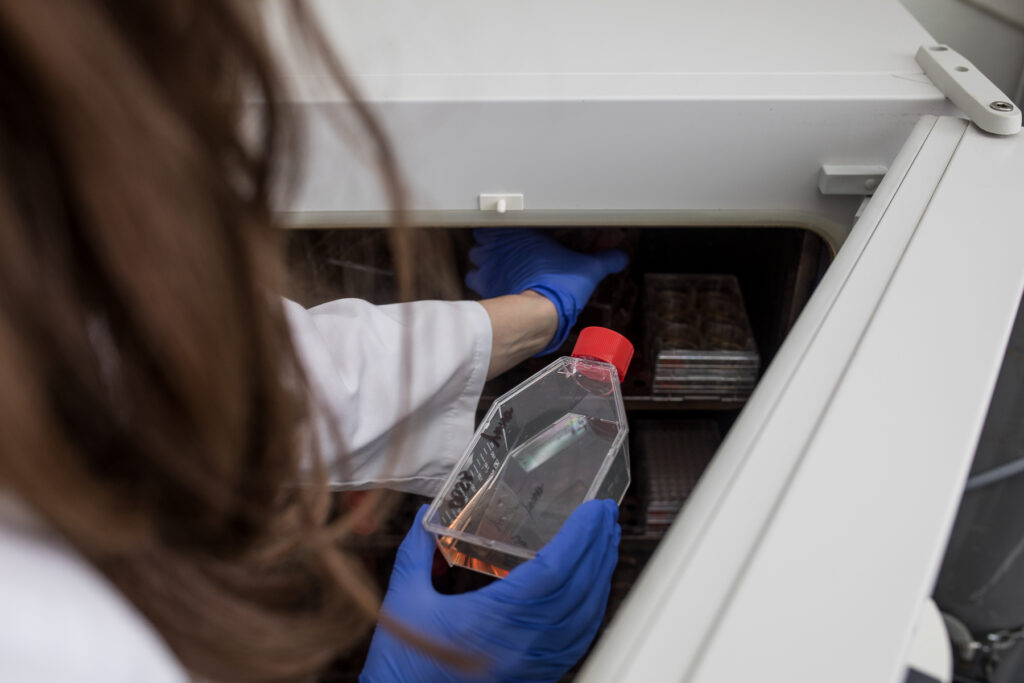
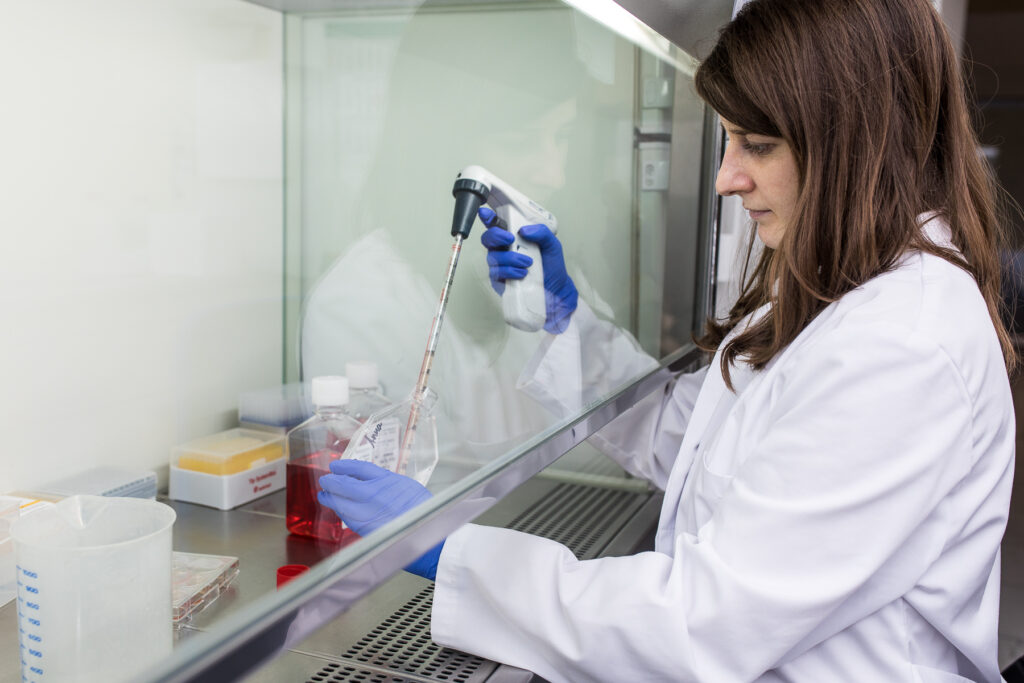

21. How often do you as a friend / partner / mother / daughter feel guilty when you have to meet a deadline again?
As a friend very frequently. As a partner almost never. Career has always been important for both my partner and me. This means that it is quite normal for us to talk openly about and accept that the other one has a looming deadline and we try to support each other in those moments rather than make each other feel guilty. However, while we have a lot of mutual respect for each other’s work, we also try to make the most of the moments when we are together
22. How did you imagine your future as a child? What profession did you want to pursue?
That I would have a happy family with kids that are having a lot of fun, be regularly visiting my siblings and in the free time be saving the world from some deadly viruses.
23. How do you keep your head clear when you are stressed?
I usually go for a swim. It reminds me of the summer, and it is easy to forget about everything else for a moment.
24. What is your favorite German word?
Tschüssie!
25. What makes you most happy about the world?
Family and friends, food, good books.
26. Which of your traits bothers you the most in your daily work?
Sometimes I wish I could be a bit braver and would not get upset about little failures – science deals with many unknowns and one needs to be quite resilient.
27. What worries you most about the world?
The increasing divide between the rich and the poor in many countries.
28. Your favourite TV series?
It changes all the time, but usually some that don’t require too much deep thinking. One that I really enjoyed is for example Jane the Virgin.
29. If someone asks you about your age, what do you respond spontaneously?
I think as a woman you don’t really get asked this question that much.
30. Which hobby have you given up for a life in academia?
I have always enjoyed reading novels. These were now replaced by papers.

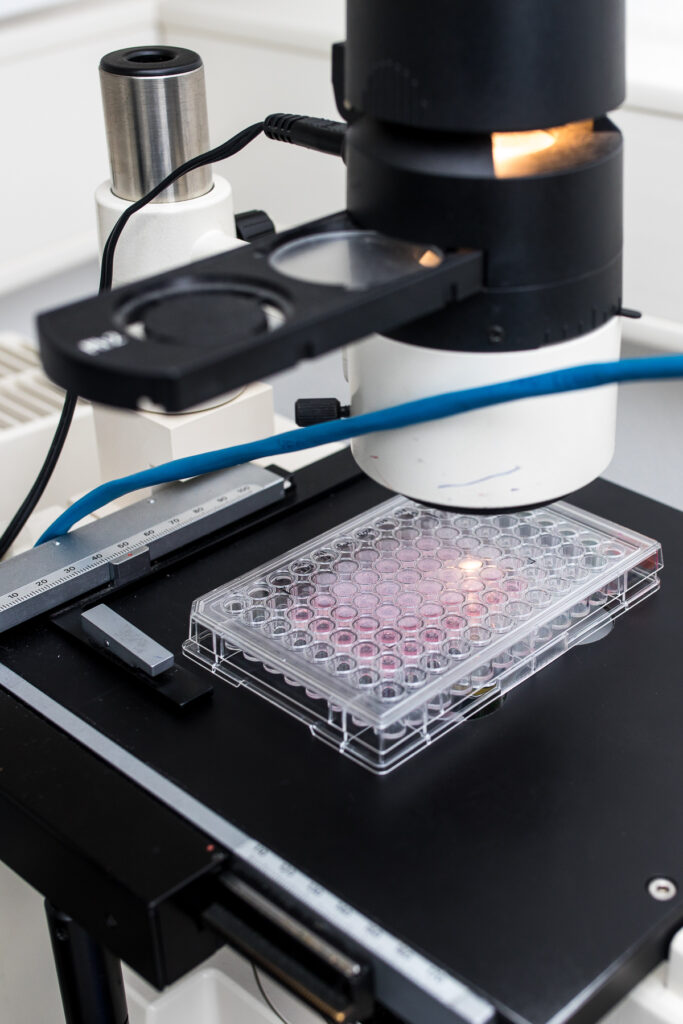

31. If you could travel in time: in which epoch and at which discovery or event would you have liked to have been there?
It could be nice to accompany Charles Darwin on his journey to Galapagos and see how he depicts and documents all the new species he observes there, eventually changing his (and our) worldview.
32. What is your favorite place in Münster?
The Aasee and the Promenade.
33. What surprised you most about the University of Münster?
In the UK, people frequently don’t do a Master’s degree and go directly for a PhD. This saves a bit of time, but you also start your ‘big project’ with less experience.


